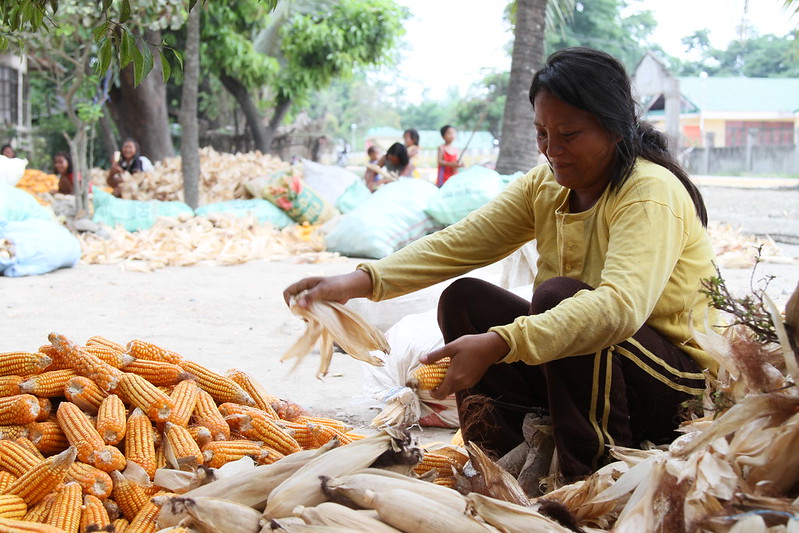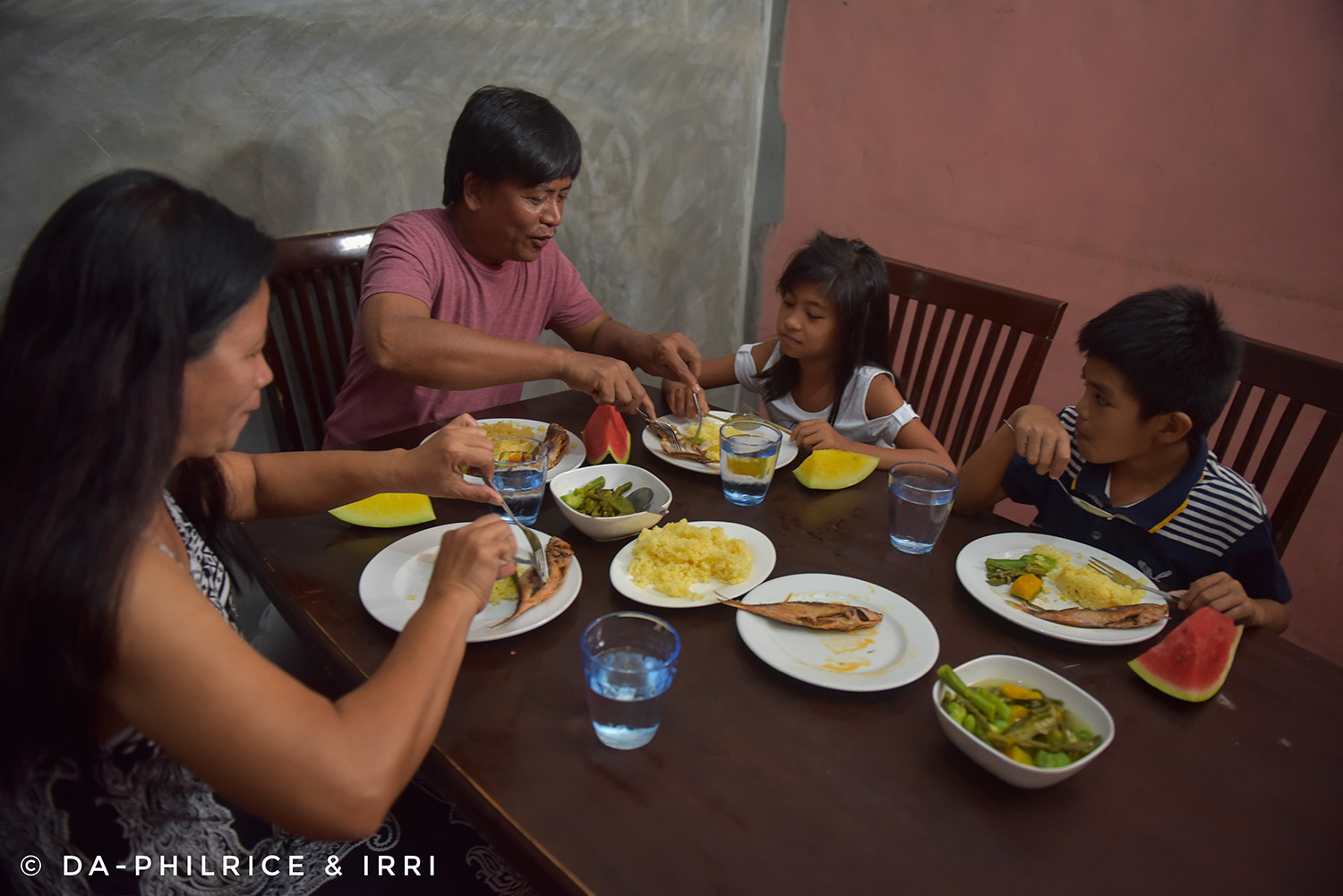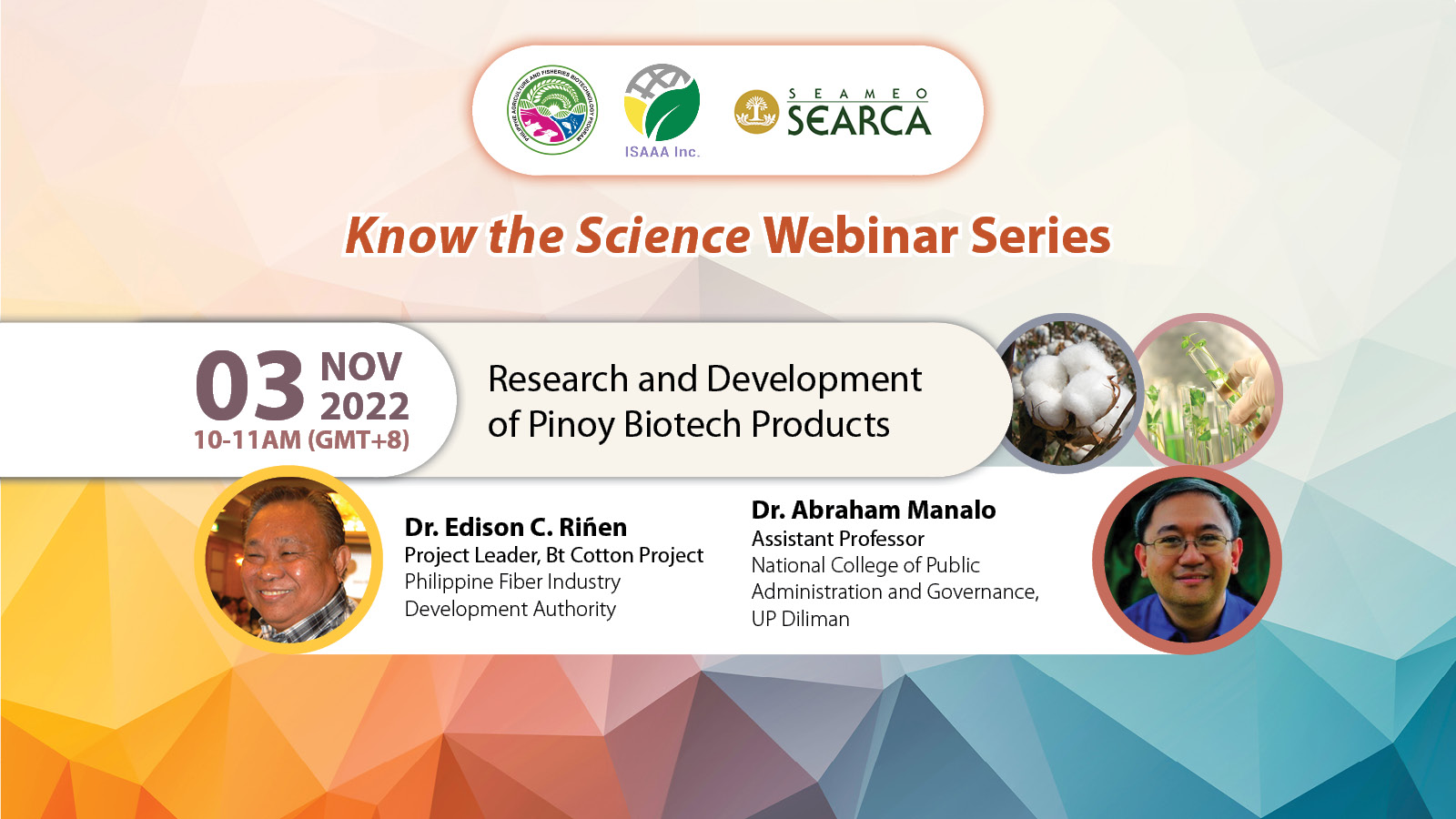Updates on PH's Commercialized Biotech Crops: Biotech Corn and Golden Rice
| |
The Philippine government supports the development of biotechnology products by bridging developers, regulatory agencies, and other stakeholders. This is according to Dr. Claro Mingala, Director of the Philippine Agriculture and Fisheries Biotechnology Program of the Department of Agriculture (DA Biotech). He stressed this during the first session of the Know the Science Webinar Series titled Current Status of Commercialized GM Crops in the Philippines: Biotech Corn and Golden Rice. The event was conducted on October 11, 2022, and was attended by 798 participants on Zoom and other social media platforms. The webinar series is a buildup activity for National Biotechnology Week, which will be held on November 21-25, 2022, in Manila, Philippines.

Biotech corn, the first biotech crop in the Philippines
Dr. Gabriel O. Romero, Executive Director of the Philippine Seed Industry Association, discussed the history of the commercialization of Bt corn in the country. The biotech crop was approved for planting in 2002, after complying with all the requirements and procedures for commercialization. This breakthrough is considered a significant strategic development in agri-biotech since Bt corn is the first GM crop commercialized in the Philippines and Asia. The crop's approval led to exponential adoption growth from 2003 to 2010. By 2011, the adoption rate was close to saturation. With the high adoption of biotech corn, the Philippines ranked 12th mega-country growing biotech crops in 2019.
Based on a survey of farmers in Pangasinan, Iloilo, and South Cotabato, the country's high adoption rate of biotech corn is attributed to increased yield, pest resistance, and good product quality, among other reasons. About 25% of the respondents also stressed that biotech corn had given them peace of mind because they no longer have to worry about pest attacks.
To highlight farmer acceptance of biotech corn, Dr. Romero quoted Roger Navarro, a biotech corn farmer, who said, "Since Bt corn reduces pesticide use, it has long-term benefits to our health, our groundwater and even the beneficial insects such as spiders that control the secondary pests. We also have more time with our family and other productive income-generating opportunities."

Golden Rice, the latest biotech crop approved in the Philippines
Dr. Ronan G. Zagado, Program Leader of Golden Rice at the DA Philippine Rice Research Institute, presented the updates on Golden Rice. He described it as ordinary rice but with the added benefit of beta-carotene, which gives the grains a golden color. The crop was developed as a complementary solution to vitamin A deficiency (VAD), which has a 15.5% prevalence in the country and affects mostly children six months to 5 years old and pregnant and lactating women.
After receiving the commercial propagation permit in 2021, PhilRice is currently multiplying the seeds. The initial deployment is being carried out during the wet season in priority areas. The number of deployment sites will increase as soon as more seeds are available.

Research and development of other biotech crops
Only biotech corn and rice have been approved for planting in the Philippines. However, other crops are currently being developed to help Filipino farmers. One of these is insect-resistant cotton. In the second session on November 3, 2022, Dr. Edison C. Riñen, Bt Cotton Project Leader from the Philippine Fiber Industry Development Authority, will present the updates in their study. Dr. Abraham Manalo, Assistant Professor at the National College of Public Administration and Governance, University of the Philippines Diliman, will also present other biotech products in the Philippine pipeline. Register now to join the webinar.

Watch open discussions of the first session on the ISAAA website.
The Know the Science Webinar Series is part of the Know the Science: Strengthening Biotech Links, a project of ISAAA Inc., in partnership with the DA Biotech and the Southeast Asian Regional Center for Graduate Study and Research and Agriculture (SEARCA).
| Newer Post | Archive | Older Post |
Science Speaks is ISAAA Inc.'s official blog. Weekly blog articles, authored by ISAAA writers, partners, and invited contributors, aim to help share, disseminate, and promote scientific knowledge and its vital role in achieving global agricultural sustainability and development. Your support to Science Speaks will help us achieve this goal. You can help us by donating as little as $10.

